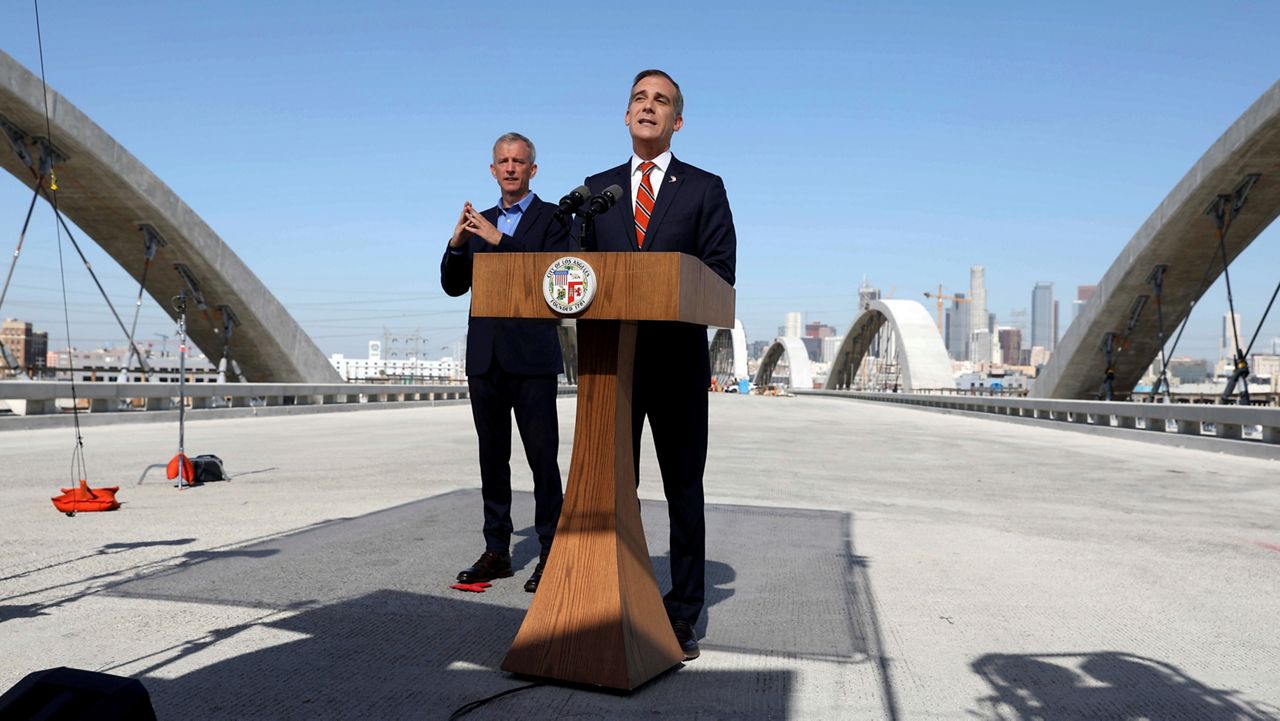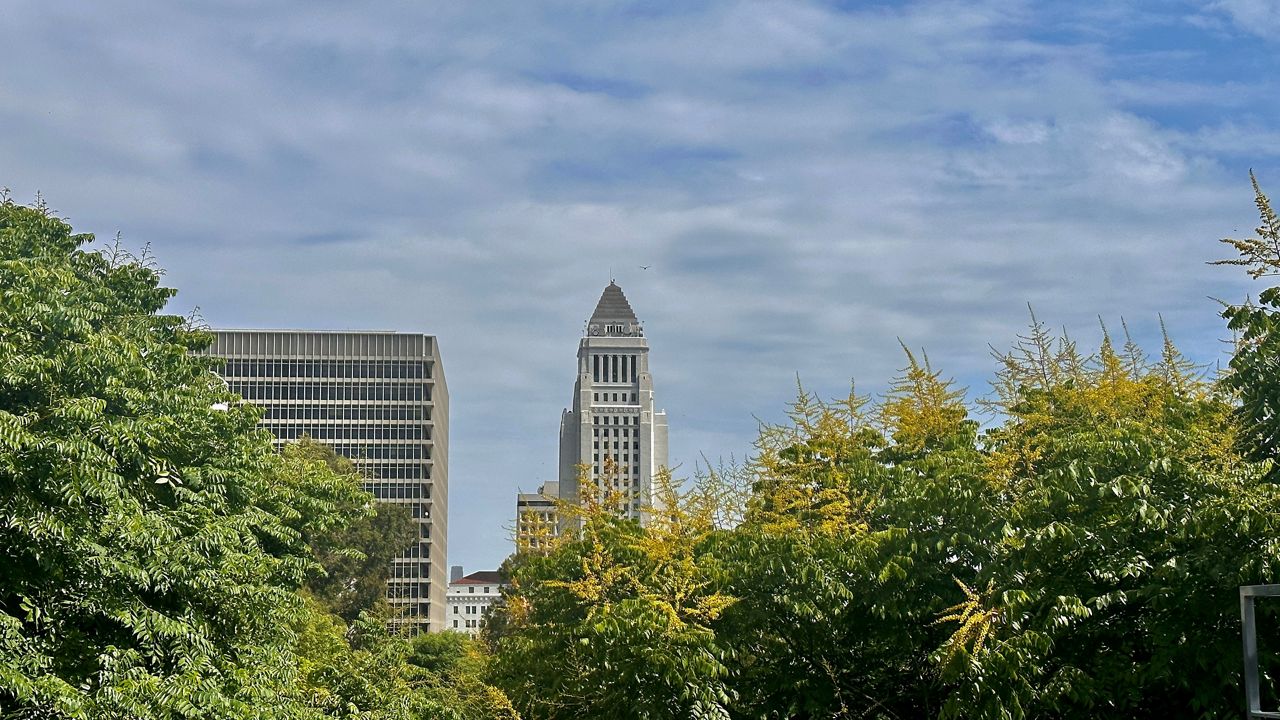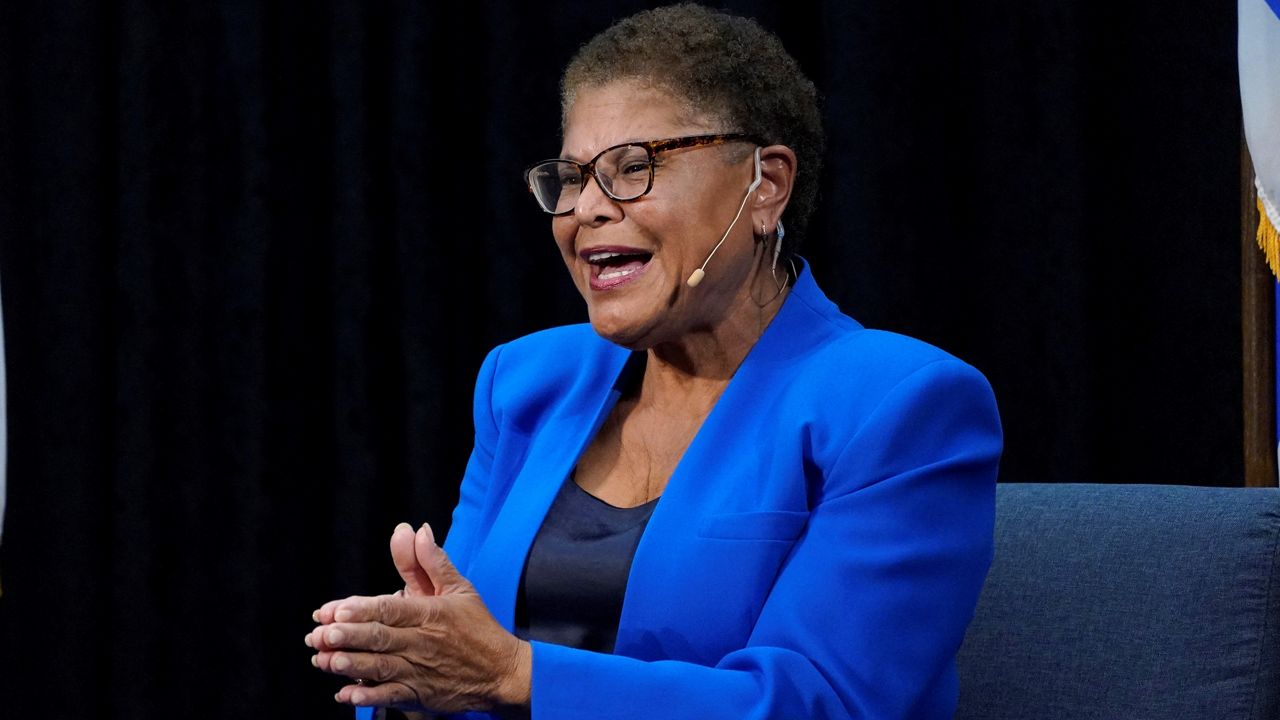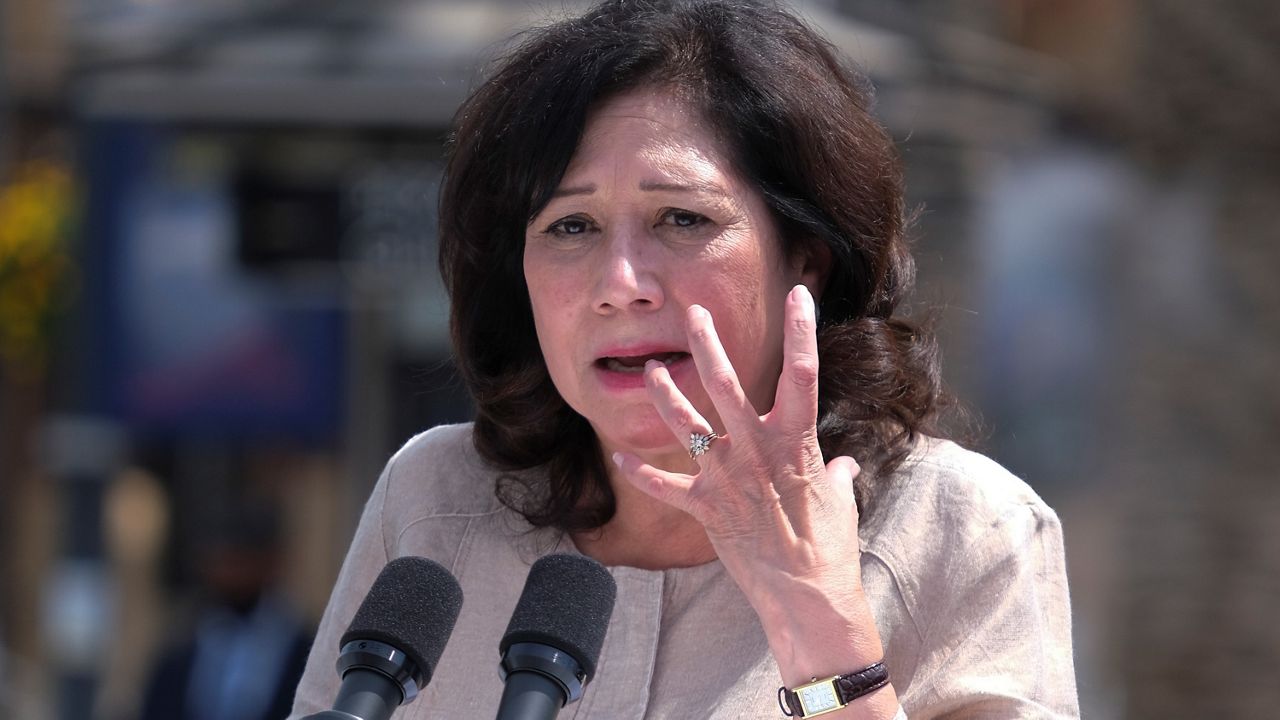LOS ANGELES (CNS) — A Los Angeles City Council committee began the lengthy task of breaking down Mayor Eric Garcetti's proposed 2022-23 budget Tuesday ahead of the new fiscal year that begins July 1.
What You Need To Know
- Unlike last year, the process of crafting a revised budget to present to the full council is taking place in-person for the committee members
- Committee member Councilman Bob Blumenfield signaled support for the budget proposal
- Councilman Curren Price called for the committee to keep equity in mind
- Over the course of several budget hearings, the committee will hear from all city departments on their budget needs and how the budget proposal addresses them
In its first of six so-far scheduled meetings between now and May 3, the Budget and Finance Committee heard presentations from Garcetti's office on the proposed budget and from City Administrative Officer Matt Szabo on revenue projections. The committee then heard from the Office of Finance, the City Attorney's Office, the City Controller's office, the Personnel Department and the Ethics Commission.
Unlike last year, the process of crafting a revised budget to present to the full council is taking place in-person for the committee members, following two years of virtual budget hearings due to the COVID-19 pandemic. While the public had to tune in virtually on Tuesday, City Hall is scheduled to reopen to the public on Monday. It wasn't immediately clear if additional budget hearings would occur after the final one scheduled on May 3, but Krekorian noted the possibility that City Hall will reopen to the public during the process.
In the case that hearings continue after City Hall reopens, Krekorian said, "we may consider going to a different type of public comment, we may have the public in the room. (It's) still to be determined exactly."
Garcetti has again proposed the largest budget in city history, with an overall $11.8 billion budget and $7.4 billion general fund revenue projection. Government spending at all levels inevitably rises because of inflation, expansion of programs and increased population.
"In the budget that's going to be before us today ... we're adding over 200 more positions, more than our high watermark in 2019, so the city workforce will grow again and so will services ... I just want us to be mindful, because it's easy ... for Angelenos now to forget how it was just over a year and a half ago when we were all inside of our homes, when businesses were shuttered, when we were living in fear ... it's easy to forget that ... but this committee can't afford to forget that as we consider this budget and we consider the investments that we're about to make," Krekorian said opening the meeting Tuesday.
Committee member Councilman Bob Blumenfield signaled support for the budget proposal, saying, "The nice thing is, with this budget in front of us, we don't have to do major, major adjustments. We have to do some minor, minor tweaks and a little bit of priority changes here and there but I feel good about where we're starting from."
Councilman Curren Price called for the committee to keep equity in mind, saying, "we can't just divide the budget by 15," the number of council districts in the city.
"We want to focus on where the needs are and making certain that we're addressing the variety of needs for all of our constituents," he added.
Over the course of several budget hearings, the committee will hear from all city departments on their budget needs and how the budget proposal addresses them.
Mayor Eric Garcetti proposed his draft budget on April 20.
Speaking to the committee Tuesday, Szabo said:
"Overall ... the mayor's budget proposal by nearly all measures established by our financial policies is fundamentally sound. It funds city services in a sustainable manner and with appropriate levels of financial resiliency that this office strongly recommends your committee maintain or enhance if possible."
The mayor, in his last year in office, said his budget is aimed at addressing the "immediate needs" of making Los Angeles safer and cleaner, combating long-term problems such as homelessness and climate change, and setting up the next administration with a large reserve fund to use in case of an emergency, as the city had to do during the first year of the COVID-19 pandemic.
The budget calls for a 8.5% increase to the Los Angeles Police Department's operating budget, which would increase it by $149 million to $1.9 billion. The department's total funding, which includes pensions, would be about $3.2 billion.
The Los Angeles Police Department will present to the committee on Thursday.
The budget hearing schedule is:
- Wednesday, 1 to 7 p.m., during which the Los Angeles Housing Department, the Los Angeles Homeless Services Authority, the Bureau of Sanitation, the Department of Transportation and the Information Technology Agency will present to the committee
- Thursday, 9 a.m. to 7 p.m., during which the LAPD, the Economic and Workforce Development Department, the Fire Department, the Department of Recreation and Parks, the Los Angeles Public Library, the Planning Department, Building and Safety and the Cannabis Regulation Department will present
- Friday, 1 to 7 p.m., during which the Board of Public Works, the Bureau of Contract Administration, the Bureau of Street Lighting, the Bureau of Engineering, the Bureau of Street Services, the Emergency Management Department, the Department on Disability, the Department of Aging and the Community Investment for Families Department
- Monday, 9 a.m. to 7 p.m., during which Los Angeles Animal Services, the City Clerk, the Los Angeles Zoo, the Department of General Services, the Department of Cultural Affairs, the Civil + Human Rights and Equity Department, El Pueblo, the Convention and Tourism Department, the Office of Public Accountability, Neighborhood Empowerment, the Youth Development Department and the CAO
- Tuesday, May 3, 9 a.m. to 7 p.m., during which the Los Angeles City Employees' Retirement System, the Los Angeles Fire and Police Pensions, labor representatives and the neighborhood councils










